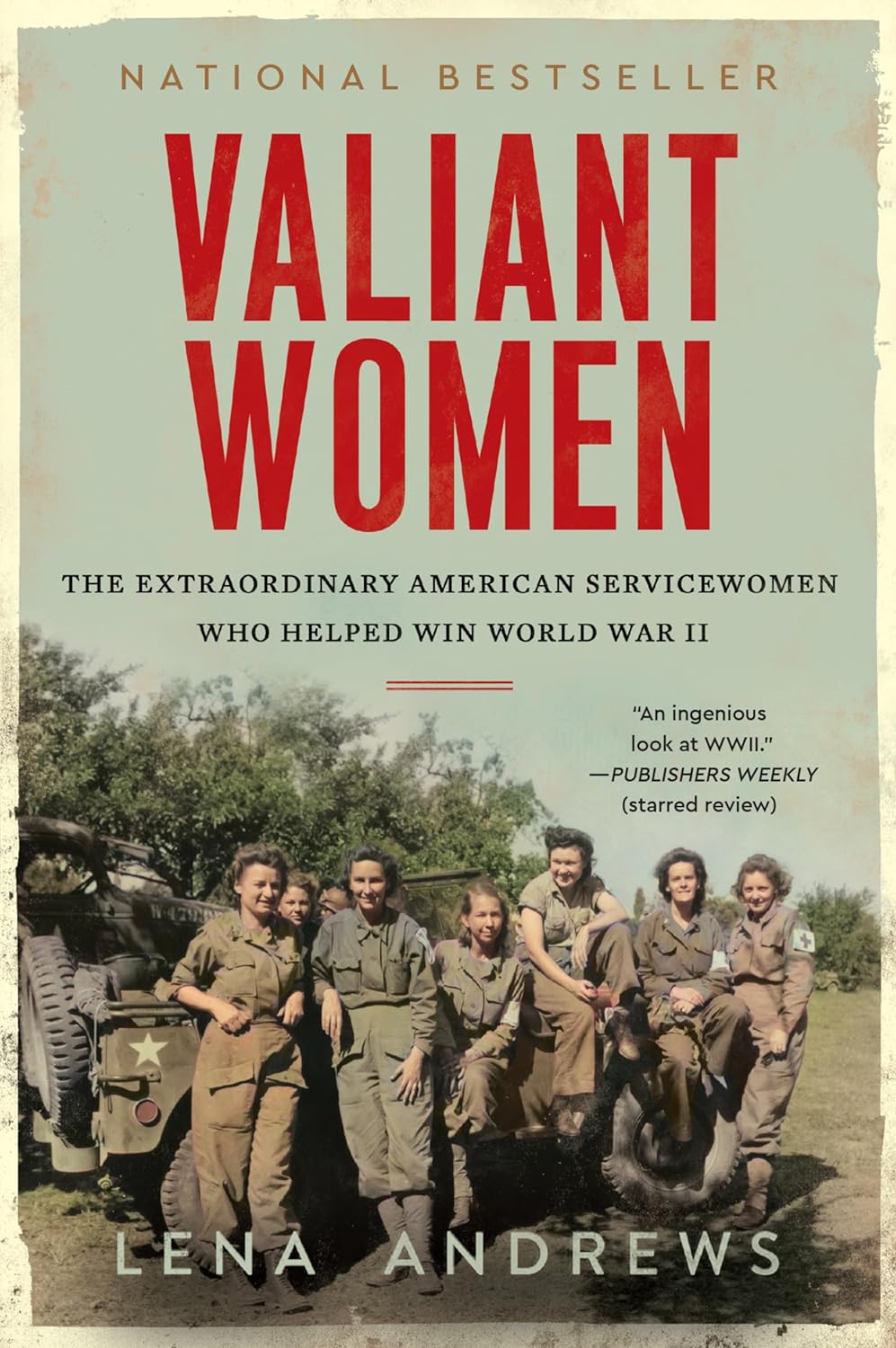Summary | Excerpt | Reviews | Beyond the Book | Readalikes | Genres & Themes | Author Bio

The Extraordinary American Servicewomen Who Helped Win World War II
by Lena S. Andrews
Flying soon became more than a savvy business move: it was an obsession for Cochran. After devoting months to training and licensing, Cochran began competing in air competitions in the 1930s and quickly became one of the best-known women pilots in the country. An exceptional flier and a media darling, she always insisted on changing out of her flight gear and adorning the signature products of her cosmetics line before granting any interviews.
In 1938, Cochran achieved a triumphant success for both her and the Seversky P-35 she flew, winning the Bendix race, one of the most popular air competitions of the time. Cochran landed her plane among a crush of reporters and in her typical fashion, "kept them waving their notebooks and press cameras while she put on fresh face powder and lipstick." Cochran's first question after opening the canopy, writes historian Sally van Wagenen Keil, was, "Where's my husband?" Her second: "Does anyone have a cigarette?"
Behind the scenes, however, Cochran's reputation was mixed. She harbored a deep feeling of inferiority within the often-elitist world of professional flying, which could make her seem sharpelbowed, particularly in the face of perceived disparagement of her intellect or skill. Though Cochran had come into money through her marriage to Odlum, she never forgot where she came from, and despised the upper-crust elitism found in women's flying circles before World War II. Cochran's distaste for the wealth and privilege of this community proved especially challenging during the war, since her primary counterpart, Nancy Harkness Love, came from precisely that rarified set.
Love was, in almost all respects, Cochran's opposite. The daughter of a doctor, she had attended Milton Academy and Vassar College, and had started flying at a young age with the full support of her family. Her father had responded to her request to take flying lessons with a simple statement, "Do it well, or not at all."
But even with her starkly different upbringing, Love did share one attribute with Cochran, ambition. Love received her pilot license at sixteen and soon after became qualified as an instructor and test pilot. With her husband, Robert Love, she built an impressive aviation-sales company in Boston and began competing in air races. She was a businesswoman, flier, and visionary—and perhaps not so different from Cochran after all.
The B-17 Flying Fortress, the United States' first operational four-engine bomber, had started development in the mid-1930s and reflected the expanding mandate of American airpower at the time. Whereas aviation in World War I was intended primarily to enhance the effects of ground forces, American air commanders during the interwar period saw airpower as having its own independent effects. This vision formed the basis of strategic bombing doctrine, which employed airpower to cripple the productive capacity of Japanese and German industry and required a fleet of long-range bombers packed with munitions to enact it.
Under the leadership of General Henry "Hap" Arnold, the Army Air Forces devoted considerable resources to building such a fleet over the course of the conflict, and the B-17 was among the first of the American bombers to be given this mission. It looked the part. "With all those guns," Arnold remembered someone saying, "it looks like a fort that can fly."
By 1942, as the first murmurs about a women's flying program started circulating, the war had crept to the far corners of the globe. Pearl Harbor ushered in a wave of Japanese victories, culminating in May with the fall of Corregidor. In Europe, the Germans and Italians took advantage of the momentum at their backs and continued to open new fronts.
But the news was not all good for the Axis. While the Nazis had occupied France with relative ease, they had been rebuffed in their cross-Channel attempt to invade England during the Battle of Britain, due largely to one of the best performances in the Royal Air Force's storied history. The Allies, seeing this success, took note of the important role airpower could play in future battles.
Excerpted from the book VALIANT WOMEN: The Extraordinary American Servicewomen Who Helped Win World War II by Lena Andrews. Copyright © 2023 by Lena Andrews. From Mariner Books, an imprint of HarperCollins Publishers. Reprinted by permission.
The secret of freedom lies in educating people, whereas the secret of tyranny is in keeping them ignorant
Click Here to find out who said this, as well as discovering other famous literary quotes!
Your guide toexceptional books
BookBrowse seeks out and recommends the best in contemporary fiction and nonfiction—books that not only engage and entertain but also deepen our understanding of ourselves and the world around us.